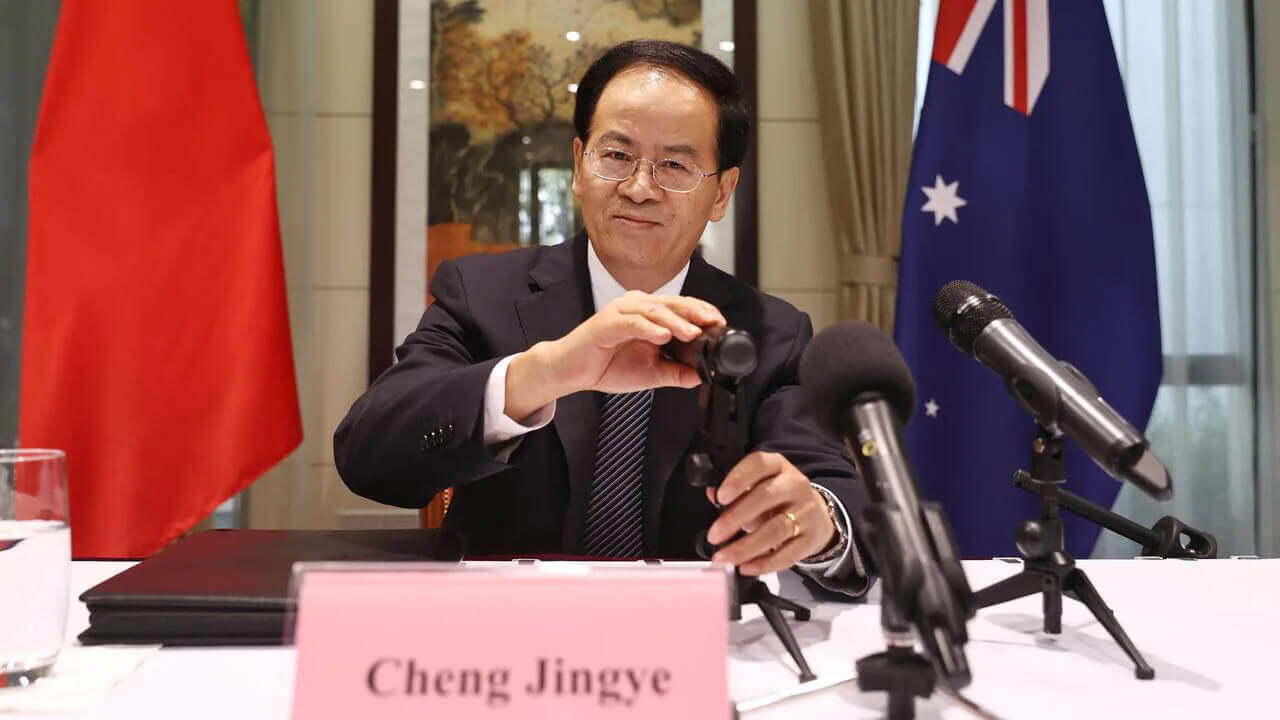On Wednesday, the Chinese embassy in Canberra invited Australian journalists to a press conference which has been described by rights groups like Human Rights Watch as a “cheap propaganda stunt”, after Chinese ambassador Cheng Jingye and other officials led a two-hour presentation that sought to tackle what Beijing sees as “distorted coverage about Xinjiang in certain Western media”.
Statement from @hrw in response to China’s embassy in Canberra holding a briefing for reporters today on Xinjiang. These cheap propaganda efforts should be called out for what they are #Xinjiang @hrw pic.twitter.com/yxc5uS4YaY
— Sophie McNeill (@Sophiemcneill) April 7, 2021
There are various reports about how Muslim Uyghurs and other Muslim minorities have been forcefully detained across 85 camps in the northwestern region of Xinjiang, where they are then used as forced labour. Furthermore, there are also reports of rape, sexual abuse, and torture in these “re-education” internment camps. This has led to the imposition of sanctions from a number of international actors, including the United States (US), the European Union (EU), the United Kingdom (UK), and Canada.
At this stage, Australia has expressed “grave concerns” about the human rights abuses in Xinjiang, noting “restrictions on freedom of religion, mass surveillance, large-scale extra-judicial detentions, as well as forced labour and forced birth control, including sterilisation”. Furthermore, it has ‘welcomed’ the punitive measured imposed by the US, the EU, the UK, and Canada, and called for China to “grant meaningful and unfettered access to Xinjiang for United Nations experts, and other independent observers”. However, it has thus far not implemented any sanctions of its own.
In fact, unlike several of her Western counterparts, Australian Minister of Foreign Affairs Marise Payne has thus far refused to describe China’s actions in Xinjiang as genocide, saying, “We have a slightly different approach to that turn of phrase. And I don’t mean this in a pedantic or a semantic way, but both the UK and Canada have different mechanisms by which to make such a declaration, as indeed does the United States. But it’s something which we are examining closely.”
Perhaps keeping this in mind, the Chinese embassy held a press conference titled “Xinjiang is a wonderful life” which was launched with a six-minute propaganda video of a region that is full of “economic development, social stability, livelihood improvement, and religious harmony”, which Ambassador Cheng said was intended to tackle the “disinformation” about Xinjiang and the Uyghurs. To this end, he declared, “Today’s press conference is to help you Australian journalists to have a better understanding of the actual situation in Xinjiang.”
In fact, the video was interspersed with interviews with Muslim residents refuting claims that they were being targeted on the basis of their religion, with one saying, “People and food, everything is so good here,” and adding, “The people (are) so friendly actually, me and my friends are so happy to stay here.” To counter claims of forced sterilisation there was even a clip of a woman who admitted to using an intra-uterine contraceptive device, who said, “I think it fits me well.” Another clip featured a mother of two who said that allegations that children were being forcefully enrolled in boarding schools are “downright lies”.
Following the screening of the video, government representatives appeared to concede that some Uyghurs are currently detained in Xinjiang, but said that the 1 million figure that has been reported is “fabricated” by “anti-China forces”. In the fast, the government has defended these detentions saying that they form part of the government’s counter-terrorism, deradicalisation, and vocational training policies.
Prior to the press conference, Australian Prime Minister (PM) Scott Morrison remarked, “We want a positive relationship, but we will have a positive relationship that is consistent with Australia acting in accordance with its values and its national character,” adding, “That would never be something that we would yield for the sake of a relationship.”
During Australian PM Scott Morrison’s term, Australia has grown ever-closer to the United States, particularly during the ongoing pandemic. His administration has called for international investigations into China’s complicity in the coronavirus pandemic, described Beijing’s territorial claims in the South China Sea (SCS) as having “no legal basis”, criticised the new security legislation in Hong Kong and the treatment of Uighur Muslims in Xinjiang province, elevated Australia’s relationship with India from a Strategic Partnership to a Comprehensive Strategic Partnership (CSP), participated in multiple exercises with the Quad, signed a defense pact with Japan, joined US warships in an attempt to steer Chinese vessels out of Malaysia’s Exclusive Economic Zone (EEZ), banned Huawei from the country’s 5G network, and introduced a new law that will allow the federal government to overrule any agreements reached between state agreements and foreign governments and entities.
As a result, China’s MOFCOM has placed strict trade restrictions and even temporary bans on a number of Australian exports, including copper, wine, beef, barley, timber, lobster, coal, dairy, sugar, wool, fruit, and oatmeal. These measures and Australia’s strong critiques of China’s policies have greatly disturbed diplomatic and trade ties between the two countries. In fact, Beijing has responded by publishing a list of 14 grievances it has with Canberra.
Keeping these tensions in mind, at the press conference on Wednesday, Ambassador Cheng said, “We are of course disappointed by those allegations by the Australian side and we have made that clear.” He opined that fractured ties between the two countries could be “put back on track”, but within the same breath warned, “If we are provoked, we will respond in kind.”

